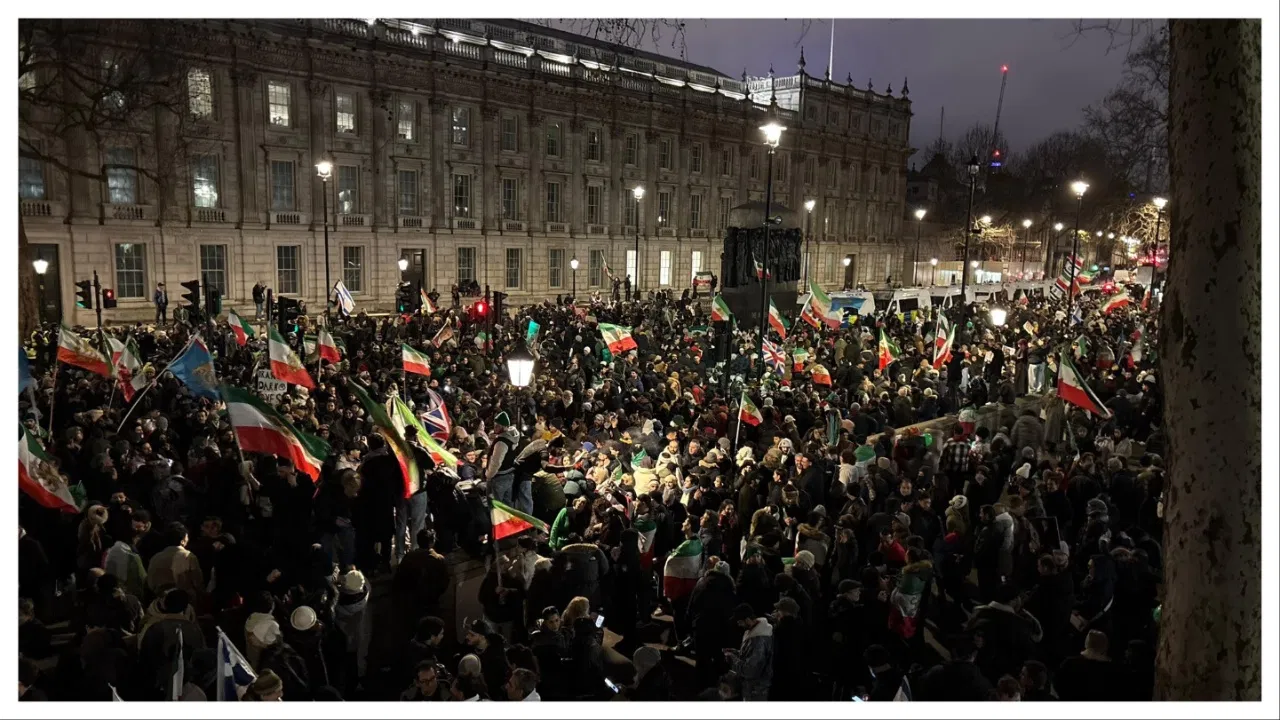Tehran / Global: Sardar Mushtaq Gill, founder of LEAD Ministries, has issued a strong condemnation of Iran’s recent violent crackdown on prot
Sialkot: The media is the fourth pillar of the state, which plays a key role in shaping positive public opinion. Today's media has become very powerful. It has the ability to change or cancel decisions made in parliament. The media not only identifies the country's political, social, economic, and religious problems, but also suggests effective measures to solve them.
According to the Pakistan Media and Regulatory Authority, there are a total of 96 TV channels in Pakistan of which 37 are news and current affairs channels. All these channels in their news, commentaries, and talk shows, only address the problems of the Pakistani majority and their solutions while they have no concern with the problems of the approximately 10 million minorities living in the country. However, it makes the atrocities and injustices committed against minorities part of its news. It shows the houses of Christians being demolished and churches being burned just to increase its ratings. Apart from this minorities also have political, social and religious problems that the media can work on and draw the government's attention to solving.
Sindh is facing a serious problem of kidnapping, forced marriage and religious conversion of Hindu minor girls and Punjab is also facing a serious problem of kidnapping, forced marriage and religious conversion of minor girls. According to information provided by the Catholic News Agency and other social organizations about 1,000 such incidents occur every year. Most of the police avoid registering such cases but the number of cases registered is around 1,000..Similarly, misuse of the blasphemy law is not only fatal for minorities but also leads to the destruction of settlements. Politically, minorities are victims of democratic inequality. They are completely dissatisfied with the procedure for specific minority seats. They want elections instead of selection for these seats. From 1973 to 2025, the number of reserved seats for minorities was not increased but the media never paid attention to all the issues mentioned above, neither did it make them part of its news nor did it invite Christian leaders on talk shows to try to find out their position. These are the topics that are in the notice of the international media that are covered in news and comments that are discussed on talk shows.
For the past few days, Geo News journalist Shahzeb Khanzada has been openly stating this in his program that killed hundreds of Christians and burned dozens of churches between 2015 and 2025. Shahzeb Khanzada is admitting this today, but before that he had never mentioned these incidents in his investigations or discussed them in his program. All this is done to generate ratings for their programs, which will not benefit minorities.
The media also promotes equal rights for minorities but has there ever been any attempt to give equal representation to minorities? Christians should be included in Independence Day programs and their services should be acknowledged so that future generations know that Christians were fighters in every frontline of the Quaid-e-Azam's struggle for Pakistan.
Although August 11 is officially celebrated as National Minorities Day no special coverage is given to this day on the national media nor are any talk shows organized on the occasion of this day. This attitude of the national media shows a lack of interest in minorities.
The Institute for Research, Advocacy and Development has conducted an investigative review of the media in a report titled ‘How does the Pakistani media report on religious minorities?’, which also revealed that their positions and opinions are often not included in news coverage about religious minorities.
Dr. Tauseef Ahmed, former head of the Department of Mass Communication at the Federal Urdu University, says that the issue of forced religious conversion of Hindu and Christian communities in Sindh and Punjab is not being discussed by the Urdu media, especially TV channels. The second issue is discrimination, which is constitutional, legal, and traditional. This is also not discussed because the constitution does not provide equal rights for all citizens, and if someone makes this demand, it is not highlighted.
National media in Pakistan plays a mixed role in addressing minority issues, sometimes highlighting issues such as violence and forced conversion, while at other times failing to perpetuate stereotypes and provide consistent or balanced coverage.
While the media can raise awareness about minority rights and events, it often prioritizes political news and lacks consistent reporting on the daily challenges, stereotypes, and discrimination faced by religious and other minority groups.
Due to the lack of representation of minorities and vulnerable groups and the working on the agenda of specific political parties, the Pakistani national media has not been able to maintain impartiality, due to which, according to the World Press Freedom Index, Pakistan's media is ranked 157th out of 180 countries around the world.
The government and key stakeholders should cooperate and take immediate remedial measures to protect the rights of minorities and bring them into the socio-political mainstream with the help of a more sensitive and professional media.
You May Also Like
Washington, D.C.14 January 2026: On behalf of global refugee communities, especially Christian refugees, Sardar Mushtaq Gill, founder of LEAD Minis
Pakistan: The Lahore High Court today ordered the recovery of Aneeqa, a 13-year-old Christian girl who was abducted on December 29, 2025, and hande

On demand of our readers, I have decided to release E-Book version of "Trial of Pakistani Christian Nation" on website of PCP which can also be viewed on website of Pakistan Christian Congress www.pakistanchristiancongress.org . You can read chapter wise by clicking tab on left handside of PDF format of E-Book.









